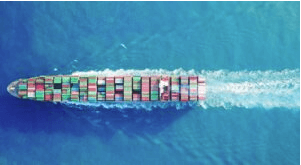TTIP is expected to breathe new life into container shipping industry
Overcapacity and the stagnating world trade have thrown the container shipping industry into a crisis. TTIP might be able to get the contested market moving again.
In view of a hardly growing world trade, the lasting crisis within the container shipping industry has turned into a merciless international competition. In the past few years, ocean freight forwarders tried to cut administrative costs with mergers and to reduce the fleet by higher capacity figures. In view of the constantly falling freight rates, especially small freight forwarders are now hardly competitive. Many of them are facing insolvency. But even the industry leaders are struggling with the transport costs of container exports, which are by now barely profitable.
TTIP as a solution
The planed Transatlantic Trade and Investment Partnership TTIP between the EU and the USA could now finally boost the industry again. Especially big sea freight forwarders are expecting the agreement to bring rising freight rates and to end the container shipping crisis, which has been lasting for nine years now.
Higher freight volume
With TTIP, customs for sea freight will no longer be necessary and regulatory divergence will get aligned. By that, the order situation is expected to improve for international freight forwarders. Falling costs and simplified trade regulations are supposed to increase the number of container exports and the rising demand could bring freight rates back onto a profitable level.
Liberal procurement
In addition, the planned opening of cabotage regulations could lead to assigning national orders internationally within the container shipping industry. Until now, the Jones Act has been prohibiting both the transport of containers between American ports by foreign sea freight forwarders and the construction of such transport ships abroad. Similar regulations apply to the container shipping within the EU. TTIP would change that. National container shipping could be done by international freight forwarders.
Small freight forwarders are endangered
But while big freight forwarders see TTIP as an opportunity, the planned agreement means new existential threads for smaller transportation companies. The sea trade liberation for container export promotes big alliances and international forwarders. With their low freight rates, those big companies are more competitive than small companies with a low financial scope. For them, TTIP could mean the definitive end.








